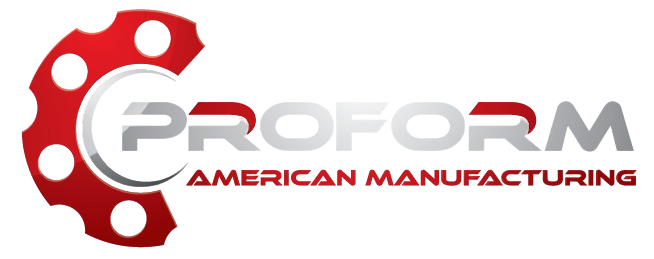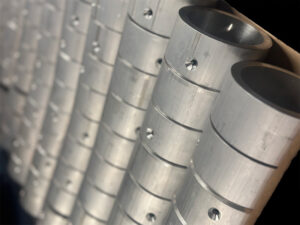Industrial Machinery Components in CNC Manufacturing
Industrial machinery components are vital in manufacturing, driving efficiency, productivity, and innovation. As technology advances at an unprecedented pace, these machines and components have undergone remarkable transformations. They are ushering in a new era of intelligent manufacturing. Industrial machinery plays a pivotal role in various industries, powering mass production, enhancing operational efficiency, and driving economic growth.
This article will explore the latest innovations in industrial machinery components and their impact on modern manufacturing processes. We will also understand the significance of industrial machinery manufacturing and the role of skilled engineers in optimizing production processes. Manufacturing industrial machinery involves a wide range of skills and intricate processes. It may require the expertise of automation and electrical engineers, as well as the skill of mechanical engineering.
Industrial Machinery Components and The American Machinery Parts Manufacturer
Behind every functioning machine lies a meticulously crafted set of machinery parts. These parts are the building blocks of industrial equipment, ensuring smooth operations, precision, and reliability. At Proform, we delve into the world of machinery parts manufacturing. We understand the processes involved, the importance of precision, and the advancements shaping the industry.
Importance of a Machinery Parts Manufacturer
Machinery parts manufacturers are critical in the manufacturing industry, serving various sectors such as automotive, aerospace, construction, and energy. These parts withstand rigorous conditions, deliver specific functionalities, and improve machine performance. Whether gears, shafts, bearings, or housings, each industrial machinery component plays a crucial role. They ensure the smooth operation of machinery.
Manufacturing Processes for Machinery Parts
Casting:
Casting is a widely used manufacturing process for creating machinery parts. It involves pouring molten metal or other materials into a mold and allowing it to solidify. The result is a part with the desired shape and dimensions. Casting enables the production of complex parts with intricate details and is suitable for large-scale manufacturing.
Machining:
Machining is a subtractive manufacturing process involving removing material from a workpiece to achieve the desired shape and dimensions. Various machining techniques, such as milling, turning, drilling, and grinding, shape the raw material into a finished part. The machinery industry offers excellent precision and allows for customization and fine-tuning of parts.
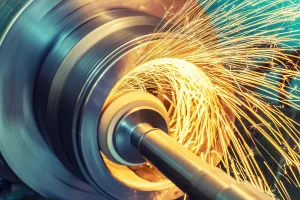
Forging:
Forging is a process that involves shaping metal by applying compressive forces through a machine tool like a mechanical or hydraulic press. The material is heated to a high temperature, hammered by heavy equipment, or pressed into the desired shape. Forging produces parts with superior strength, durability, and fatigue resistance. This makes them suitable for applications requiring high load-bearing capabilities.
Additive Manufacturing:
Additive manufacturing, commonly known as 3D printing, has gained popularity in recent years in manufacturing machinery. This process involves building parts layer by layer using metal powders or polymers. Additive manufacturing allows for complex geometries, rapid prototyping, and customization, making it valuable for producing specialized, low-volume parts.
Industrial Machinery Components: Precision and Quality Control
Precision is paramount in machinery parts manufacturing. Even slight variations in dimensions or tolerances can lead to inefficiencies or malfunctions in the assembled machine. To ensure precision, manufacturers like Proform employ stringent quality control measures, including:
Metrology:
Metrology refers to the science of measurement. It involves using precision instruments such as coordinate measuring machines (CMMs), optical comparators, and laser scanners. These products help verify the accuracy of machined parts. These instruments measure dimensions, surface finish, and geometric features to ensure compliance with design specifications.
Statistical Process Control (SPC):
SPC involves monitoring and controlling the manufacturing process to maintain consistent quality. Statistical analysis techniques identify trends, detect variations, and make data-driven decisions. A mechanical engineer that employs SPC helps manufacturers identify potential issues early on. SPC enables corrective actions to happen efficiently.
Destructive Testing (NDT):
NDT techniques, such as ultrasonic testing, X-ray inspection, and magnetic particle testing, detect internal defects in machinery parts without damage. NDT ensures the integrity and reliability of critical heavy machinery components. Testing is mainly in safety-critical industries like aerospace and nuclear power.
Advancements Shaping Industrial Machinery Components and CNC Parts Manufacturers
The field of machinery parts manufacturers continues to evolve, driven by technological advancements and industry demands. Some notable advancements include the development of new materials with enhanced properties. These include high-strength alloys, lightweight composites, and heat-resistant construction machinery.
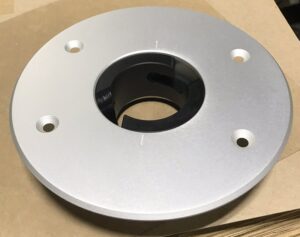
Industrial Machinery Manufacturing and Component Machinery
Manufacturing industrial machinery encompasses the production of a diverse range of equipment used in various industries. Such industries include construction machinery, machine tools, and heavy machinery. It involves integrating numerous components and systems to create efficient and reliable machines.
Component machinery includes gears, motors, actuators, and control systems. These essential building blocks contribute to industrial machines’ overall functionality and performance.
Mechanical Engineers: Masters of Industrial Machinery
Mechanical engineers are at the forefront of industrial machinery manufacturing. Their knowledge of engineering principles helps design, develop, and optimize machinery. Each mechanical automation engineer may work as a cross-functional team with an individual industrial designer and operations manager.
These skilled professionals deeply understand different types of machinery and their applications. They are critical in conceptualizing, prototyping, and improving existing equipment to meet industry demands. By applying their expertise, mechanical engineers ensure the production process is efficient, reliable, and aligned with safety regulations.
Collaboration among Industrial Designers and Engineers
Industrial designers work closely with mechanical engineers to create visually appealing and ergonomically optimized machinery. Their collaboration ensures that industrial machines excel in performance and meet the aesthetic expectations of end-users. Designers consider factors such as user experience, safety, and ease of maintenance. Industrial designers contribute to the overall success of the manufacturing process.
Optimizing Efficiency through Automation and CNC Machining
Automation engineers have revolutionized the manufacturing industry by implementing automated processes in industrial machinery production. These professionals have significantly increased productivity and minimized human error. Experts integrate robotics, computerized systems, and advanced control mechanisms.
Additionally, computer numerical control (CNC) machining allows for the precise and efficient fabrication of complex components, further enhancing the quality and reliability of industrial machines. Proform Manufacturing continues to be a leader in this space.
The Importance of Replacement Parts and Maintenance
In industrial machinery, replacement parts, and regular maintenance are available to ensure uninterrupted operations. Production downtime due to machinery breakdowns can result in substantial financial losses. Therefore, the collaboration between mechanical engineers and operations managers is essential.
They develop effective maintenance schedules, source reliable replacement parts, and implement preventive maintenance practices. Preventative maintenance ensures the longevity and optimal performance of industrial machines throughout their lifespan.
In Conclusion, Industrial Machinery Components Continue to Evolve
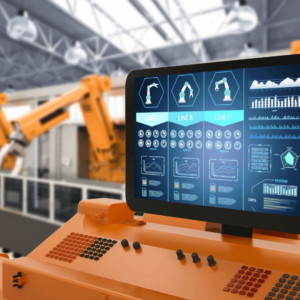
The continuous advancements in industrial machinery and components have transformed the manufacturing landscape. Automation, robotics, IoT connectivity, 3D printing, advanced sensors, and AI-driven systems are revolutionizing production processes. They drive efficiency and promote innovation.
As technology continues to evolve, the potential for further improvements in industrial machinery is immense. Manufacturers like Proform, who embrace these innovations, will gain a competitive edge. We strive to increase productivity and stay ahead in the dynamic world of modern manufacturing.
Industrial machinery components manufacturing is a complex and vital industry that drives economic growth and supports various sectors.
Mechanical engineers, industrial designers, automation engineers, and each electrical engineer collaborates to create cutting-edge machinery that optimizes production processes. With advanced technologies like automation and CNC machining, industrial machinery manufacturers can achieve better efficiency, productivity, and quality. Continuous improvement, regular maintenance, and the availability of replacement parts further ensure the longevity and reliability of industrial machines.
To learn more about industrial machinery, contact us or explore related articles that delve into the intricacies of this dynamic field.
Contact us today to learn more about CNC manufacturing.
